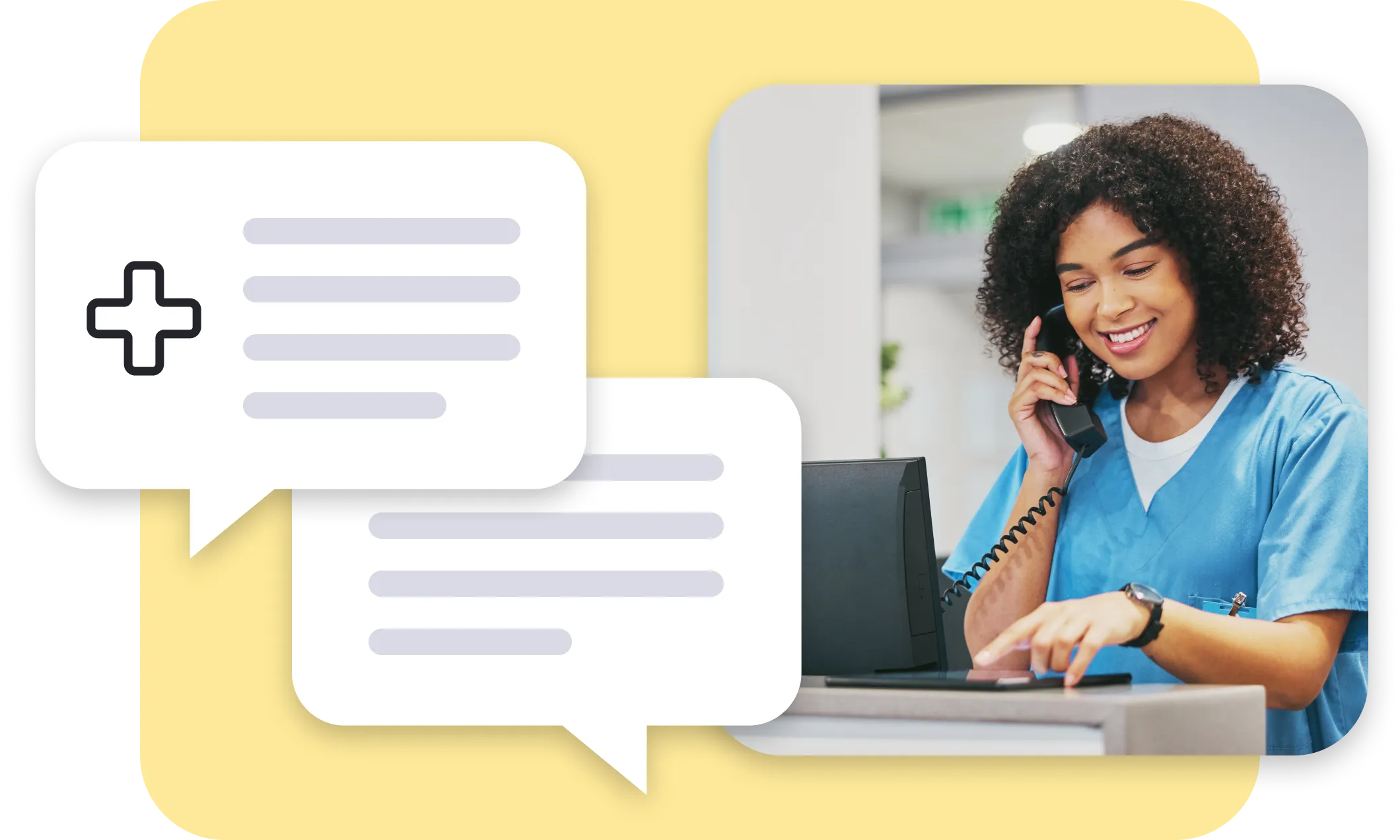
Deliver fast, accurate, and safe assessments and advice for patient triage. This can be delivered over the telephone within ambulance services, GP Practices, Clinical Assessment Services, out-of-hours services, and as a national clinical decision support service.

TeleAssess can be used by your clinicians in any setting. The questions will flow in an intuitive conversational style, allowing your clinicians to ask the questions they feel most pertinent to ascertain the correct acuity for the patient, with the ability to upgrade or downgrade accordingly.

FirstCall Core & FirstCall Lite
FirstCall can be deployed for an individual service through to a large-scale call centre. Call handlers can use FirstCall Core or FirstCall Lite, with FirstCall Core they can deflect patients by offering self-care advice or they can use FirstCall Lite to prioritise patients for appointments, telephone call backs or signposting to a variety of services.

Patient can be used on any mobile device or tablet by patients to assess themselves and provide the healthcare setting with an acuity and urgency. This allows the service to deal with the most urgent patients first.
Our different varieties of Clinical Decision Support, previously named Odyssey, have a broad range of common features and functionalities.
Webinar
Discover how AI can transform healthcare for the better. The rise of Artificial Intelligence (AI) is revolutionising industries, and healthcare is no exception. But where do you, as a healthcare prof
We provide solutions that effortlessly get the job done, allowing our customers to focus on thriving for the people who rely on them.
Speak to our expert consultants for personalised advice and recommendations or to book a demo.
Call us on
0330 343 4000Please enter your details, and our team will contact you shortly.
All fields are required
From simple case logging through to live chat, find the solution you need, faster.
Support centre